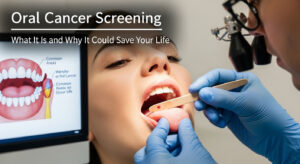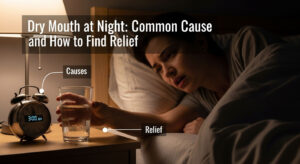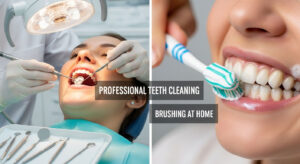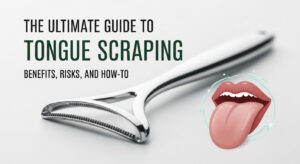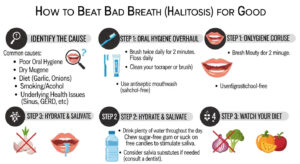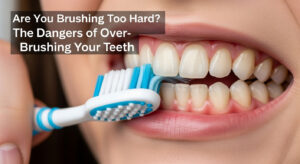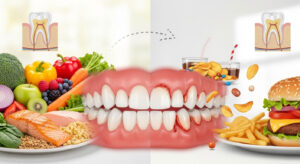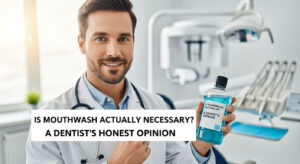Author: nearmedental
Preventative dentistry is the practice of preventing the dental disease from developing in your mouth, even when there are no symptoms. Preventative dentistry includes things like cleanings, check-ups, and sealants.
Is Preventative Dentistry Important?
Yes, preventative care is critical. We all know the damage that cavities and other dental diseases can cause. But what many people don’t realize is that these problems start small and often go unnoticed until they become a severe threat to our health. That’s why it’s not enough to visit the dentist for a cleaning once or twice a year. We have to commit to preventive care on an ongoing basis throughout our lifetime.
What Are Some Of The Benefits Of Preventative Dentistry?
Preventing dental disease has several benefits:
1) It saves you money in the long run,
2) You will feel better about your oral health,
3) You will have a beautiful smile for years to come.
How Does Preventative Dental Care Save Me Money In The Long Run?
If you’re not proactive about treatment, you will develop extensive dental problems. We’re talking about major oral health issues that require much more time and cost than regular check-ups or cleanings. Not to mention, many patients need multiple procedures before they can even begin the treatment they need. Plus, your dentist may have to refer you to a specialist, which will cost even more money.
Does Fluoride Help Your Oral Health?
Yes, fluoride helps to maintain good oral health. Fluoride is a mineral found in the earth’s crust. It is most effective when consumed by young children through drinking water. Fluoride maintains the protective layer of enamel on our teeth by making them more resistant to acids that can demineralize the tooth. This is why fluoridated water has been used for decades to prevent tooth decay in children and adults alike.
Fluoride-rich dentifrices are also available. Fluoride prevents cavities by remineralizing surface enamel after the acid attack and promotes the remineralization of subsurface lesions and the hardening of exposed dentinal tubules.
What Are The Benefits Of Deep Cleaning?
Anti-caries effectiveness of professional deep cleaning, as a supplement to regular toothbrushing, is believed to be mainly due to removing dental plaque and calculus that accumulates on the tooth surface during the day, resulting in less exposure to tooth surfaces to sugars and acid. Furthermore, professional deep cleaning may stimulate the immune response by releasing cytokines from innate immune cells such as neutrophils, macrophages, and mast cells.
The benefits of deep cleaning include:
1) Increased removal of plaque and tartar from hard-to-reach areas of your teeth
2) Reduced gingivitis by up to 50%
3) Decreased bad breath
4) Improved tooth and gum health
5) Prevention of cavities, gingivitis, periodontal disease, oral cancer, oral infections
6) A brighter smile with whiter teeth
7) Prevention of bad taste in your mouth
8) Relieves stress because you will have a more confident smile
9) An overall healthier mouth and body.
How Does Flossing Help Your Oral Health?
Flossing helps to remove plaque from the areas between our teeth that a toothbrush cannot reach. It also prevents bacteria from spreading to other parts of your mouth if it’s removed from between your teeth with flossing.
Here are some additional benefits of flossing:
1) Removes food particles from between your teeth
2) Helps to control the bad breath by removing bacteria from the surface of your tongue
3) Prevents gum disease and cavities because it reduces plaque formation
4) Reduces inflammation in the gums
5) Prevents bad taste in your mouth
6) Helps to keep our teeth healthy and strong.
How To Keep Your Teeth, White After Preventative Dentistry Treatments?
Many of us love the benefits that come with cosmetic dentistry, but poor dental habits can quickly undo all of that work. By following these tips, you can keep your teeth white after cosmetic treatments.
1) Whiten only your teeth – Teeth whitening is a popular procedure for many people looking to improve their smile. However, if you do not regularly maintain home dental habits or follow through with treatments, the results might be short-lived.
2) Brush twice a day – The more times you brush, the better!
3) Floss your teeth once a day –
4) Use mouthwash twice a day – Mouthwash is ideal for preventing plaque from accumulating on your teeth and gums.
5) Eat foods high in calcium – Foods high in calcium, like milk and cheese, can help keep your teeth strong.
6) Be aware of how you brush – Brushing incorrectly can cause damage to your mouth, gums, and teeth. Ideally, it would help if you used small circular motions when bracing under the gum line around the tooth’s crown.
7) Replace your toothbrush regularly – Your toothbrush can hold grime and bacteria after brushing, which is terrible for your teeth.
Eat A Balanced Diet For Good Teeth.
It is essential to eat a balanced diet if you want to maintain good teeth. You could risk getting cavities, gum disease, and other oral health problems if you don’t. Your food choices can affect your oral health, so it’s best to be mindful of what you’re putting into your mouth. That means eating the right foods at the right time!





